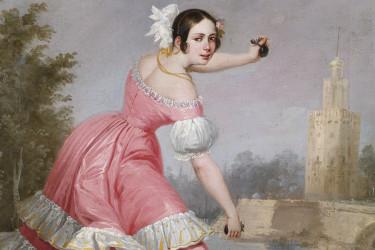 For nostalgia-lovers, the 2016 World Series was a gold mine. There are dozens of articles out there recounting what life was like in the years the Chicago Cubs (1908) and Cleveland Indians (1948) last won the World Series. The drought has been so long for both teams…and I thought it would be fun to take a look (and listen) to what was happening in the world of classical music during those years.
For nostalgia-lovers, the 2016 World Series was a gold mine. There are dozens of articles out there recounting what life was like in the years the Chicago Cubs (1908) and Cleveland Indians (1948) last won the World Series. The drought has been so long for both teams…and I thought it would be fun to take a look (and listen) to what was happening in the world of classical music during those years.

At the bottom of this post, you’ll find a playlist of much of the music that I mention here. Feel free to check it out and share this post with others.
1908 in classical music:
A number of great symphonies receive their first performance, including Mahler’s 7th, Rachmaninoff’s 2nd, and Elgar’s 1st.
Claude Debussy marries his mistress, the singer Emma Bardac. His Children’s Corner Suite, for solo piano, is premiered in Paris.
Same town, a few months earlier, the orchestration of Maurice Ravel’s Rhapsodie espagnole is given its first performance. Ravel is accused of plagiarizing Debussy’s Habanera in the work, so Ravel carefully indicates on the score that the Rhapsodie was actually written many years earlier as a work for two pianos.
Alexander Scriabin’s The Poem of Ecstasy receives its premiere in New York. The writer Henry Miller describes it as being “like a bath of ice, cocaine, and rainbows.”
Igor Stravinsky writes one of his first works for orchestra, Feu d’artifice (Fireworks). The work isn’t premiered until 1909, but when it is, a fellow named Serge Diaghilev is in attendance and he quickly commissions a ballet, which is quite successful (The Firebird) and leads to more Diaghilev commissions, including Petrushka and The Rite of Spring.
The Chicago Symphony Orchestra was known as the Theodore Thomas Orchestra (named for its founder and first music director). Its music director was Frederick Stock, who held that post from 1905-1942.
The Cleveland Orchestra did not yet exist.
Conductor Herbert von Karajan, violinist David Oistrakh, and composer Olivier Messiaen are born.
Composer Nikolai Rimsky-Korsakov and violinist/composer Pablo de Sarasate die.
It’s not classical music, but I just found this too good to ignore: 1908 was also the year that a certain baseball song was published. You know it well. It is still sung at every single baseball game 108 years later.

1948 in classical music:
The great maestro of the radio airwaves, Arturo Toscanini, makes his television debut, conducting the NBC Symphony Orchestra in music by Richard Wagner.
Beethoven’s 9th Symphony is aired on television for the very first time. Again, Toscanini conducts the NBC Symphony Orchestra and the chorus master was a 32-year-old up-and-coming conductor named Robert Shaw.
Columbia Records introduces a new long-playing record: 33 1/3 rpm and a whopping 25 minutes of music per side!
Still four years away from his landmark 1952 composition 4’33”, two works by composer John Cage were premiered on a concert at Black Mountain College in North Carolina: the Suite for Toy Piano and In A Landscape.
Less than a year before he died, 85-year-old Richard Strauss, composes his Four Last Songs. He does not live long enough to hear the first performance (by Kirsten Flagstad), which takes place in 1950 in London.
Soprano Eleanor Steber (with the Boston Symphony, conducted by Serge Koussevitzky) sings the first performance of Samuel Barber’s rhapsody on texts by James Agee, Knoxville: Summer of 1915.
On a commission from jazz clarinetist Benny Goodman, Aaron Copland completes his Clarinet Concerto. It would be two years before the work would receive its first performance, by Goodman and the NBC Symphony Orchestra, conducted by Fritz Reiner, who would become the music director of the Chicago Symphony Orchestra three years afterwards.
Andrei Zhdanov, Chairman of the RSFSR Supreme Soviet, accuses Dmitri Shostakovich, Sergei Prokofiev, Aram Khachaturian, and other Soviet composer of writing inappropriate and formalist music. Most of Shostakovich’s music is banned and he is fired from his job at the Moscow Conservatory. He writes film music to help earn money to pay his rent.
A number of great symphonies receive their world premieres, including Lutosławski’s 1st, David Diamond’s 4th, Walter Piston’s 3rd, Hans Werner Henze’s 1st, and George Antheil’s 5th.
George Szell, in his second season as the music director of the Cleveland Orchestra, is in the process of revitalizing the orchestra and raising its profile to become one of the top American orchestras.
Former Cleveland Orchestra, New York Philharmonic, and Los Angeles Philharmonic music director Artur Rodzinski spends one season (1947-48) as music director of the Chicago Symphony Orchestra. As was the case in previous posts, he does not get along with the orchestra’s board and quickly leaves his post with the CSO.
Cellist Misha Maisky, soprano Kathleen Battle, composer Andrew Lloyd Webber, and conductor Richard Hickox are born.
Composer Manuel Ponce, hotelier and theater impresario Rupert D’Oyly Carte, and composer Franz Lehár die.
Please enjoy the playlist below! At the end, I’ve included side-by-side performances of the Bartok Concerto for Orchestra, performed by Reiner/Chicago and Szell/Cleveland…you know, just for fun!







